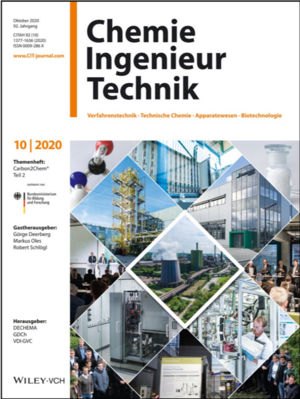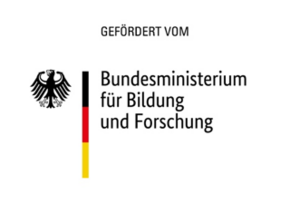The Carbon2Chem® project is a large-scale initiative that started in 2016 with the aim to use the unavoidable carbon dioxide from steel production to create valuable primary products for fuels, plastic industry or even fertilizers. The project involves 17 partners from both, scientific and industrial institutions, working together on developing and validating sustainable processes.
The development of the sustainable processes with the focus on the technical feasibility as well as economic viability was accomplished in the first phase of the project, that ended in May 2020. The second part of Carbon2Chem® will aim towards the validation of the developed processes for large-scale implementation. This will eventually lead to foundation for low-emission steel production. However, before that one needs to summarize the achievements from the first phase, in order to build up a bigger and common picture from and for all partners. Two approaches are being introduced in order to realize this aim.
First of them is a thematic special issue in Chemie Ingenieur Technik (CIT) journal that came out recently. This issue entitled “Carbon2Chem® – A Successful Cross‐Industrial Network for Sustainable Climate Protection and Preservation of Competitiveness” is guest-edited by Prof. Robert Schlögl (Max Planck Institute for Chemical Energy Conversion), Prof. Görge Deerberg (Frauenhofer Institute for Environmental, Safety and Technology UMSICHT) and Dr. Markus Oles (thyssenkrupp AG) and is already the second issue (after October 2018) published in CIT with the focus on this collaborative project. In the editorial, the coordinator stresses out the great collaboration between the partners from science and industry as well as “valuable research results beyond the project goals set in the previous period”. The results demonstrate that the Carbon2Chem® technology pushes Germany as a center for technology as well as creates job opportunities on new opened markets. The CIT special issue contains 6 articles authored by researchers from MPI CEC, presenting research ranging from the synthesis on polymeric precursors to reports on a new analytical infrastructure, to investigation of impurities and methods for gas purification. This also represents the great engagement and involvement of the MPI CEC researchers in the Carbon2Chem® project.
The second approach to merge the successes from phase 1 to get a better overall picture, is the 3rd Carbon2Chem® conference within the series “Sustainable Chemical Conversion in Industry” (October 27-28, 2020) with a significant contribution from the MPI CEC. Prof. Schlögl as one of the three coordinators of the project among others summarized the first phase (2016-2020), whereas Dr. Holger Ruland (group leader Catalytic Technology) reported on the new challenges for the reference process methanol synthesis within the Carbon2Chem® concept.
Hussong, C., Langanke, J., Leitner, W. (2020). Carbon2Polymer: A CO2‐based Route to Polyurethanes via Oxidative Carbonylation of TDA with Methyl Formate Chemie Ingenieur Technik 92(10), 1482-1488. https://doi.org/10.1002/cite.202000031
Salazar Gómez, J.I., Klucken, C., Sojka, M., von der Waydbrink, G., Schlögl, R., Ruland, H. (2020). The HüGaProp‐Container: Analytical Infrastructure for the Carbon2Chem® Challenge Chemie Ingenieur Technik 92(10), 1514-1524. https://doi.org/10.1002/cite.202000101
He, J., Laudenschleger, D., Schittkowski, J., Machoke, A., Song, H., Muhler, M., Schlögl, R., Ruland, H. (2020). Influence of Contaminants in Steel Mill Exhaust Gases on Cu/ZnO/Al2O3 Catalysts Applied in Methanol Synthesis Chemie Ingenieur Technik 92(10), 1525-1532. https://doi.org/10.1002/cite.202000045
Folke, M., Song, H., Schittkowski, J., Schlögl, R., Ruland, H. (2020). Oxygen Poisoning in Laboratory Testing of Iron‐Based Ammonia Synthesis Catalysts and its Potential Sources Chemie Ingenieur Technik 92(10), 1567-1573. https://doi.org/10.1002/cite.202000100
Salazar Gómez, J.I., Takhtehfouladi, E.S., Schlögl, R., Ruland, H. (2020). Design and Implementation of a Gas Generating System for Complex Gas Mixtures and Calibration Gases Chemie Ingenieur Technik 92(10), 1574-1585. https://doi.org/10.1002/cite.202000110
Sánchez-Bastardo, N., Schlögl, R., Ruland, H. (2020). Methane Pyrolysis for CO2‐Free H2 Production: A Green Process to Overcome Renewable Energies Unsteadiness Chemie Ingenieur Technik 92(10), 1596-1609. https://doi.org/10.1002/cite.202000029


